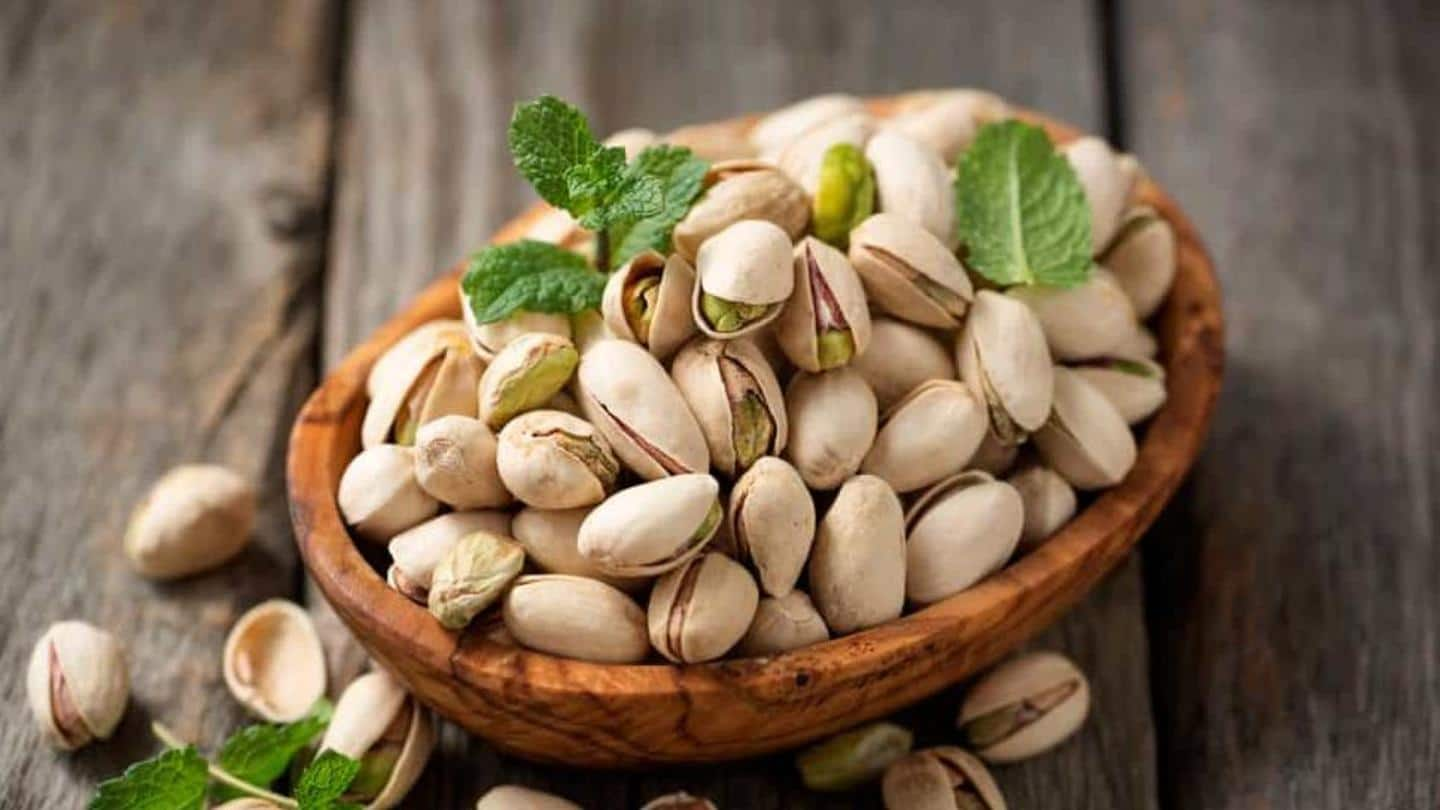
#HealthBytes: Here's why pistachios are good for your health
What's the story
Pistachios are tree nuts that are loaded with nutrients and have been around since as early as 7000 BC.
The nuts have a sweet and nutty flavor, are light yellow or green in color, and are used in a variety of dishes ranging from salads to desserts like ice creams.
Here are a few reasons why pistachios are good for you.
Protein
Low in calories but have a rich protein content
Most nuts, while being nutrient-rich, also tend to be high in calories. Pistachios are good in this regard as they are one of the lowest-calorie nuts available.
Also, they have a higher content of essential amino acids than most nuts. This is especially important because amino acids can not be produced by the body and should be obtained from the diet.
Fiber
Are rich in fiber and promote healthy gut bacteria
Prebiotics are a type of fiber that feeds healthy gut bacteria and reduces the number of harmful bacteria. A healthy gut microbiome is not only important for better digestion but is also linked with a reduced risk of developing cancer and heart diseases.
In this regard, pistachios are beneficial as a study conducted in 2012 shows that it helps increase healthy gut bacteria.
Eye health
Contains lutein and zeaxanthin that are important for eye health
Pistachios are a rich source of the antioxidants lutein and zeaxanthin, both of which are essential for good eye health. Further, these antioxidants are known to reduce the risk of developing age-related macular degeneration, cataracts, and other eye diseases.
Including a moderate quantity of pistachios in the daily diet is a great way to prevent any eye complications from developing.
Antioxidants
Packed with antioxidants that prevent damage to the body's cells
Antioxidants are substances that neutralize the damage caused by harmful free radicals in the body. Nuts and seeds are known to have high antioxidant levels, but studies prove that pistachios have higher levels of some antioxidants than other nuts.
They are also packed with antioxidants like γ-tocopherol, phytosterols, and xanthophyll carotenoids that play a crucial role in reducing the risk of diseases like cancer.